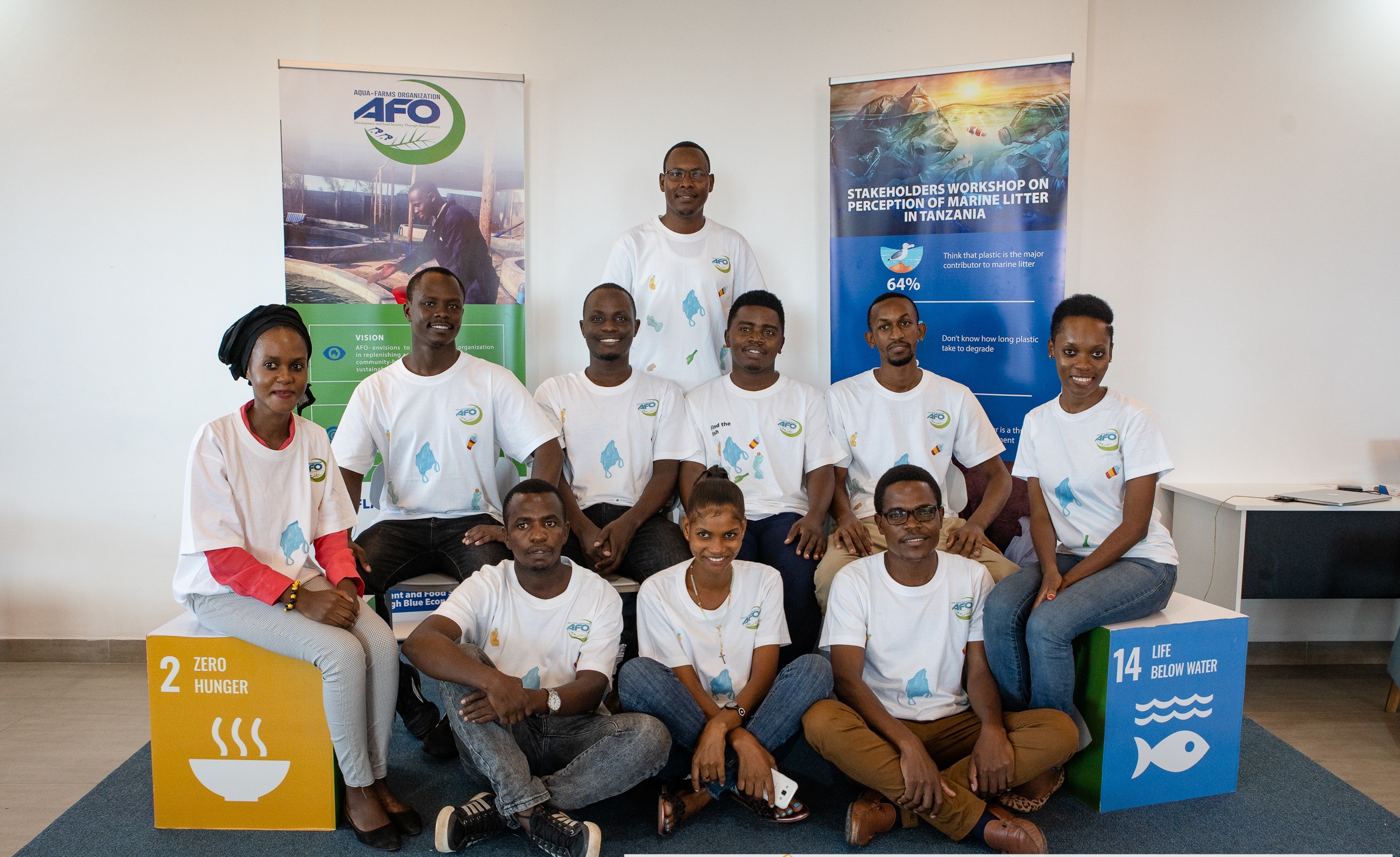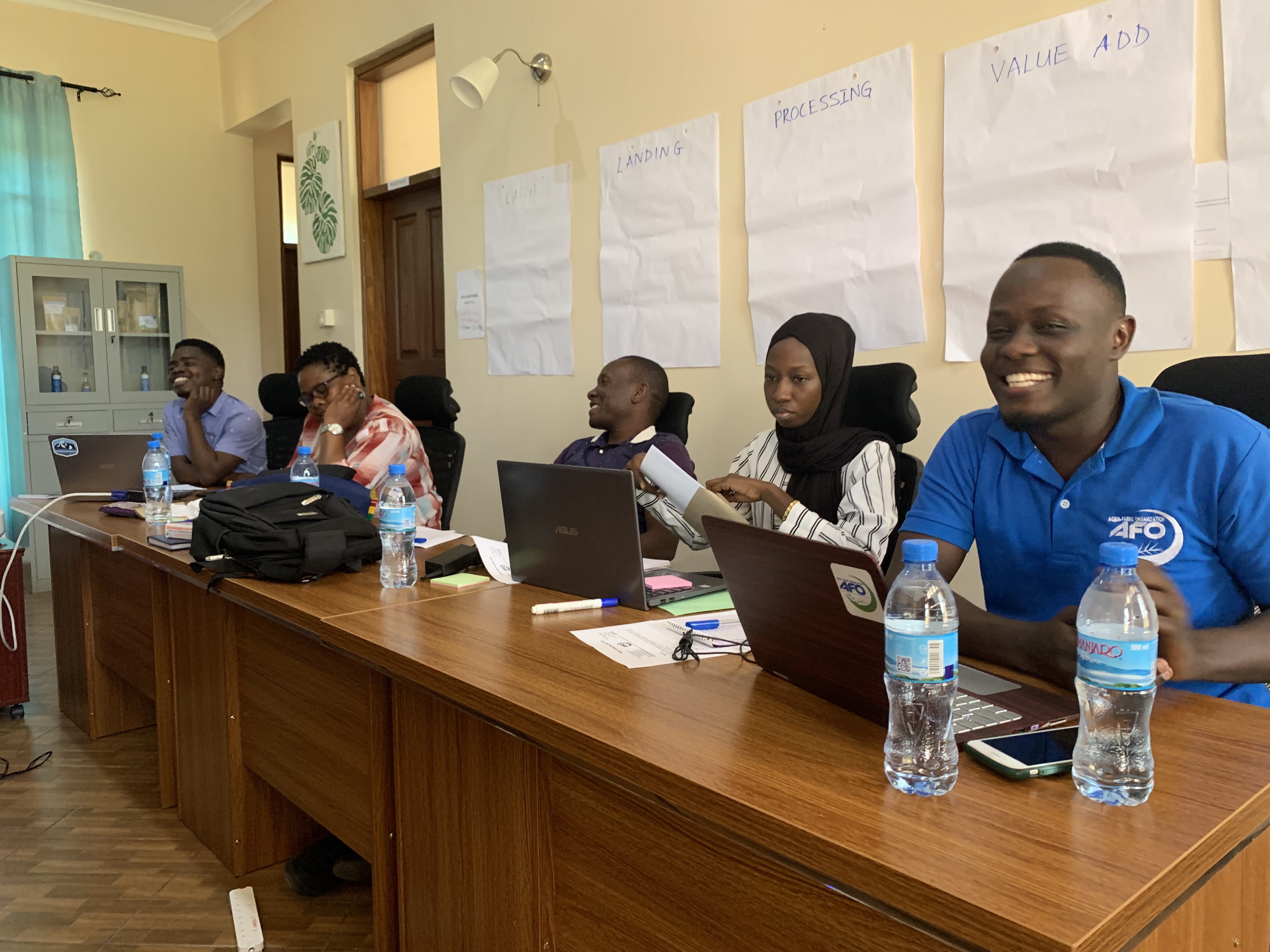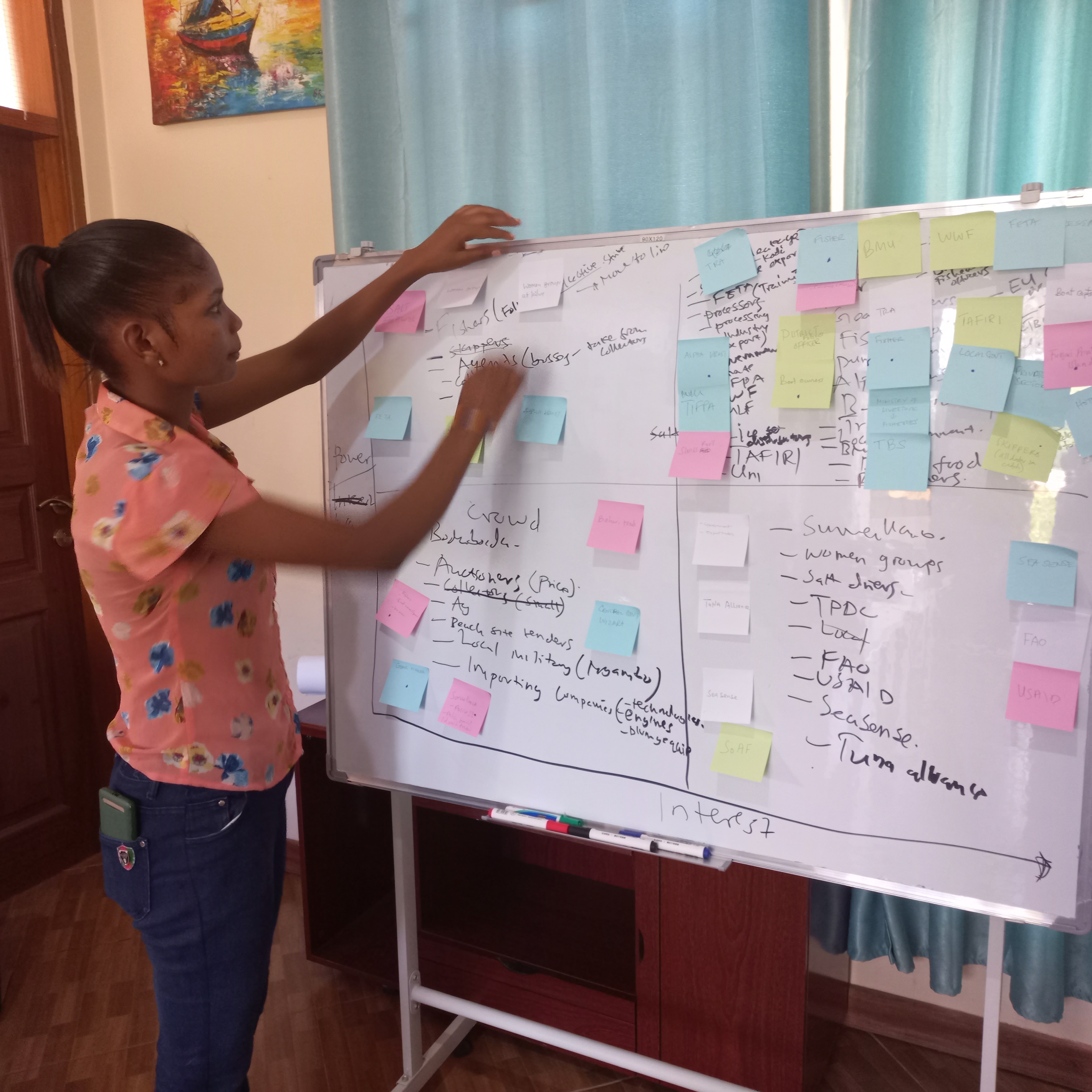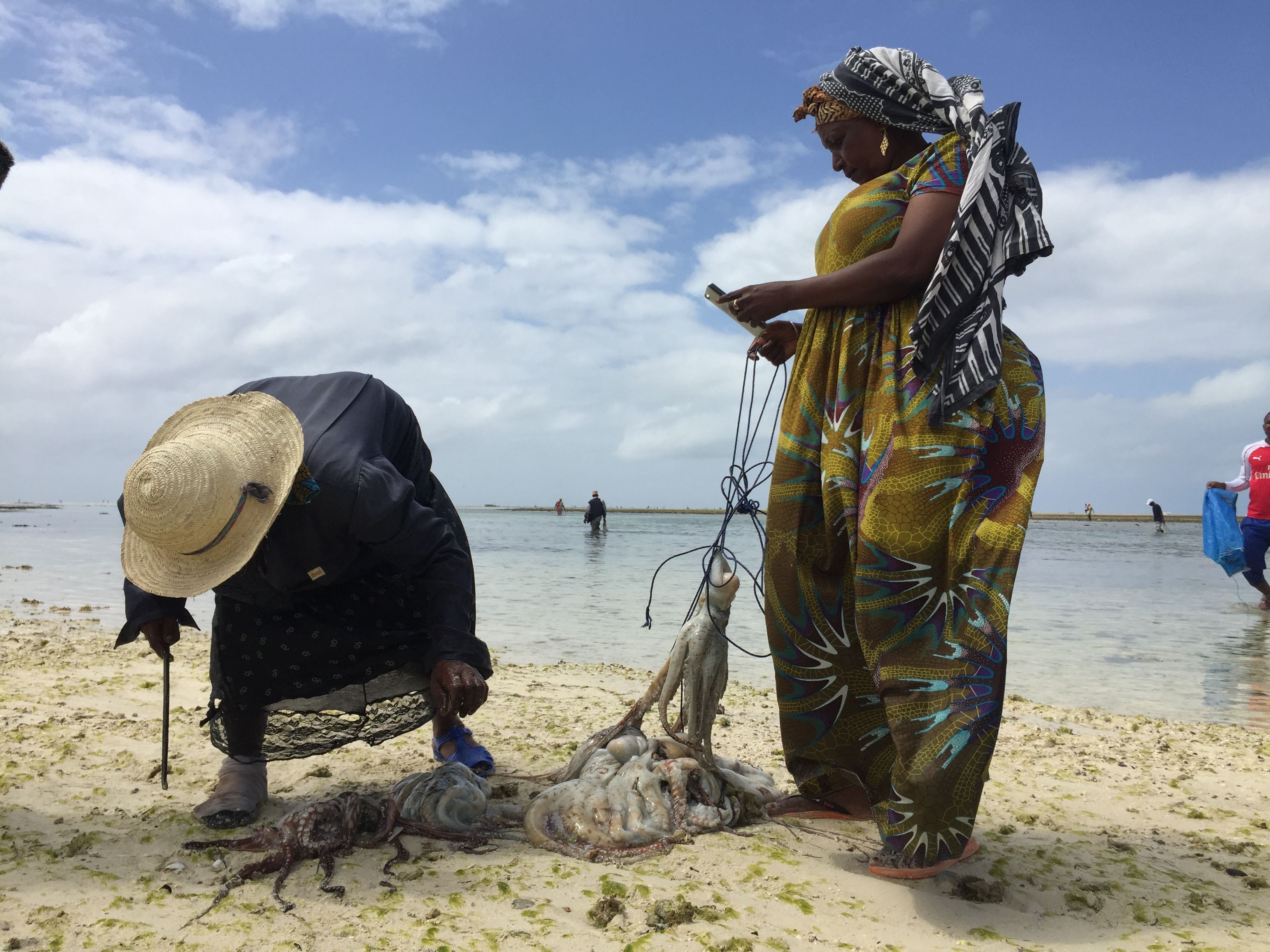
Q&A with Aqua-Farms Organization: Applying the Comprehensive Traceability Principles in Tanzania
Can you tell us about your organization?
Aqua-Farms Organization (AFO) is a youth-led, non-governmental organization (NGO) based in Tanzania. Founded in 2016, AFO aims to create resilient coastal communities by supporting sustainable use of ocean resources. Our work focuses on community marine habitat restoration, improving fish markets, as well as innovation and research toward expanding livelihood opportunities while preserving biodiversity at large.
We understand that the conservation of fishery resources (e.g., octopus) requires a system that collects information while building transparency and trust among actors involved in the supply chain. This, in turn, empowers consumers to make informed decisions. AFO’s team, in cooperation with SALT, and with support from the Ministry of Livestock and Fisheries in Tanzania and the USAID Tanzania Mission, is currently implementing a project to help facilitate the development of an electronic catch documentation and traceability strategy that includes multi-stakeholder perspectives. The project provides a timely opportunity to inform the Tanzanian government’s development of a traceability program that will help fisheries management combat illegal, unreported, and unregulated fishing while meeting EU market requirements, and empowering the majority of Tanzanian youth and women.
Who is involved in the project with SALT?
AFO is conducting this project in cooperation with SALT and a Senior Technical Advisor, Mr. Yahya Mgawe. The AFO team comprises an energetic team with staff experienced in Tanzania fishery and management. Project co-lead Prof Dr. Narriman Jiddawi served in senior positions of fishery management in Tanzania, published research about the octopus fishery, and supervised a number of postgraduate students as a professor at the Institute of Marine Sciences (IMS) of University of Dar es Salaam Tanzania. AFO Project Coordinator Mr. Cretus Mtonga served as Executive Secretary of AFO for over five years, holding a Master in Marine and Lacustrine Sciences from Ghent University of Belgium. He published on sustainability of octopus fishery, assessed octopus subpopulations, and discussed the importance of considering management units in the Western Indian Ocean octopus fishery. Mr. Yahaya Mgawe worked as a Chief Executive of the Fisheries Education and Training Agency (FETA) and implemented a number of consultancies with the Food and Agriculture Organization of the United Nations. Recently, he served as a chair of the National Task Team (NTT) and played a very important role during development of the small-scale fisheries guidelines. John Kimaro has five years of experience working closely with coastal communities on fishery management with AFO. He also participates in the National Steering Committee for the International Year of Artisanal Fisheries and Aquaculture (IYAFA 2022) promoting the FAO voluntary guideline for the National Plan of Action among the Small-Scale Fisheries. John holds a MSc in Marine Biology from Zhejiang Ocean University, China.
What kind of activities will you be doing with SALT’s support?
AFO supports the application of the Comprehensive Traceability Principles & Pathway in the Octopus Fishery in Kilwa District Tanzania by providing seafood traceability technical assistance, supporting communications, outreach, and the development of a traceability strategy. AFO facilitates effective communication about the project by helping to ensure that partners on-the-ground understand the project and strengthen collaboration among actors in the fishery. AFO cooperated with SALT and organized a launch webinar to share SALT’s work and the importance of the Tanzanian octopus fishery and seafood traceability. Stakeholder identification and analysis for the octopus fishery at Kilwa District was conducted recently through an in-house brainstorming session, webinar, and site visits. These events provided a map of stakeholders and identified important actors to engage further for success of the project. Currently, we are conducting a catch documentation and traceability (CDT) gap analysis to come up with a report that will inform the co-design event, who the key stakeholders are, and the development of the comprehensive seafood traceability strategy. Finally, the project will result in a complete strategy that will be applied in implementing the full Traceability Principles & Pathway for octopus fishery at Kilwa district and broader Tanzania. We are so excited and pleased to be a local partner in this very important project that will contribute to biodiversity conservation, sustainable fishery management, and expand livelihood opportunities for youth and women of Tanzania. Soon, AFO will meet in person with the government of Tanzania to share our progress thus far.


What are some challenges you may expect with this work?
Kilwa comprises the lower and middle income communities encompassed with unique beliefs, cultural and gender attitudes. Like most of the coastal rural villages, education and awareness on use of technology can be regarded as low. Furthermore, the communities have developed their own cultural ways of fishing, food processing (at local level), handling, and eating habits. The nature of the Kilwa octopus fishery, like many other small-scale fisheries, comprises many fishers, and diverse patterns of interacting actors in the supply chain. In Tanzania, the paper-based catch documentation is used in most of the fishing sites. Therefore, developing a good strategy for applying the Traceability Principles and Pathway requires a better understanding of the octopus value chain, management, social-economic barriers, technology, and CDT gaps that need to be addressed.
What do you plan to achieve and how will it benefit seafood traceability efforts?
We want to build an environment where the community and stakeholders have a shared understanding about the value of seafood traceability and Principles and Pathway, including the associated benefits for livelihood improvement. We want to strengthen multi-stakeholders commitment and collaboration at different parts of the octopus value chain (government, fishing, processing, cold chain, exporting, and private sectors) in providing important information that will be very crucial in designing the traceability strategy for Tanzania.

